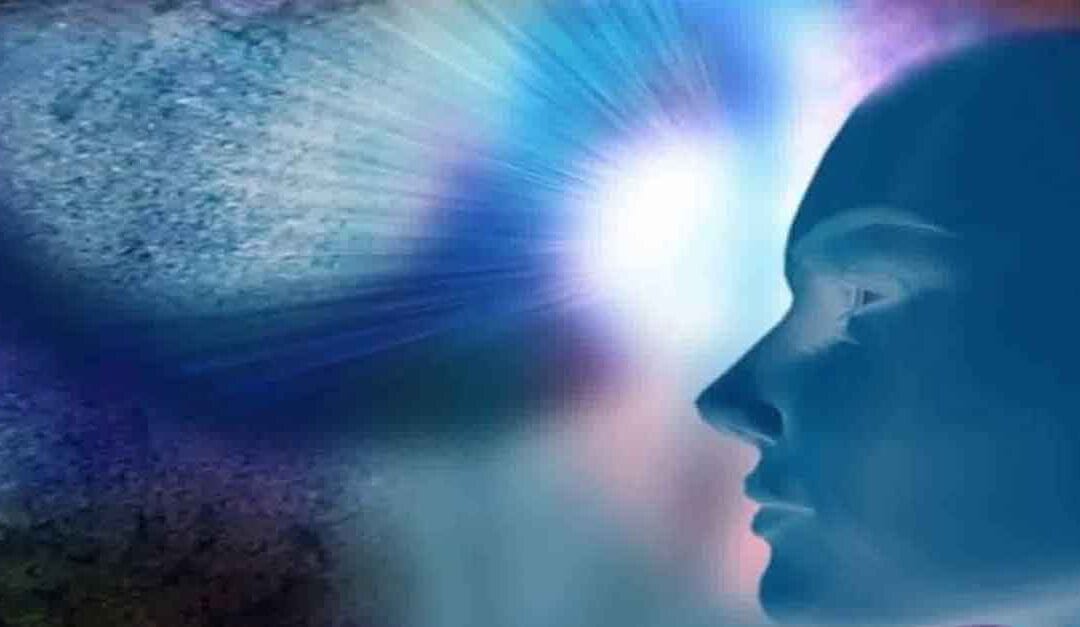Two years ago I was invited to contribute a text to a book on intuition, “Intuition and Success“. In the end, the book turned out great, with many world celebrities revealing their views on intuition, personal experiences and practical rituals.
Unfortunately, all the text I prepared for the book was not included in it. That is why I am now publishing it here in full.
QUESTION: Do you find that some things you just know and you can’t say how you got that knowledge or insight? If so, how often does this happen to you? Could you perhaps describe an example?
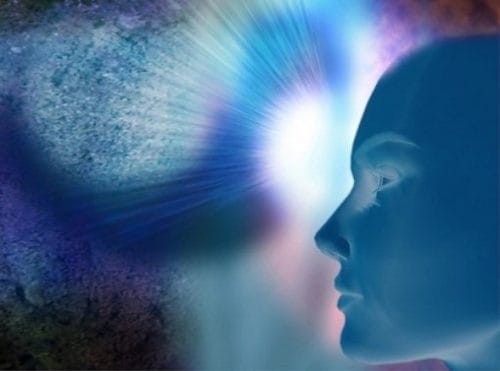
BORIS VENE: Of course, it happens to me that I feel certain things as a kind of irrefutable fact, even though they haven’t happened yet. It’s not so much a mental insight, it’s more of a feeling. It’s like the forgotten things that you suddenly remember. For example, you can’t remember a name, and then after a while it pops into your head. It is very similar to intuition.
If you work with this energy for a while – long enough to become familiar with it and to be able to distinguish it from others – it can also be a very handy tool for separating intuitive flashes from other impulses and feelings.
In fact, I used to think that intuition is the flash that makes you feel most at home, or the first thing that reveals itself when you ask yourself a question. Both are not true… Or rather, they are only conditionally true. What we feel most comfortable with is not intuition, but a feeling that tries to keep us in our comfort zone. For example, when we set ourselves a goal and an inner voice says “This is not for you” or “Maybe you should wait a little longer on that” and so on. Not every thought that pops into our head is intuition, and not every idea or guiding principle that pops into our head is the best for us.
In addition, it is important to distinguish between thoughts and feelings that come to us as a result of habitual routines and procedures and those that are intuitive. The former are the result of routine, while the latter have no basis in knowledge or experience, or are not an extension of some known experience. So, an intuitive flash is often not the result of stacking the dice, but can strike us like a bolt from the blue. That is why it can seem like something unusual, unnatural.
Of course, we can also make a significant contribution to the process of developing intuition ourselves. When we are looking for an intuitive solution, the best we can do is to research in detail the facts, the circumstances, the experiences… Once we have gathered all the information related to the question we are interested in answering, we leave it to intuition to decide. Clearly, when the answer comes, we also need to be able to “hear” it.
This is where establishing a relationship with the energy of intuition can be very helpful. We can literally treat it like a person: we can have certain feelings for it, we can be happy, we can appreciate it, respect it, be grateful to it… The more authentic the relationship we have with this energy, the more quickly we will connect with it, or the more often it will reveal itself to us. And because we have learned to “feel” this energy, we will also recognise the answer when it whispers or offers it to us. The latter can happen in a hundred and one ways.
One of the most important things is to follow intuitive advice, which often involves courage. I remember an interview for what was probably our most respected publication at the time (the second half of the 1990s) – the “Saturday Supplement” of the newspaper Delo. After the modest sales of the first book (“From the diary of a millionaire”), which at that time sold about five hundred copies, I told the reporter directly that it was a world bestseller. I had such a strong belief in it that I easily “crowned” it a world bestseller.
This was not my wish or hope, but I experienced it as an undeniable fact. My faith gave me the courage to tell everyone. Of course, my intuition – it was very strong about the book – proved to be correct. Not only does every second or third house in Slovenia now have this book on the shelf, but in 2003 it was published in electronic form by Dr Joe Vitale, one of America’s most prominent businessmen. He wrote that it was one of the top three books on well-being of all time.
The book was then published in print in India. Both publishers sold it worldwide.
Another example that sticks in my mind very clearly is the way I chose treatment when I was looking for a solution to a deadly disease I had been diagnosed with. How do you make a decision when there are so many options available? The first step was to make a clear decision. After surfing the web and searching for the optimal solution, I got lost in the strong promises of a quick cure.
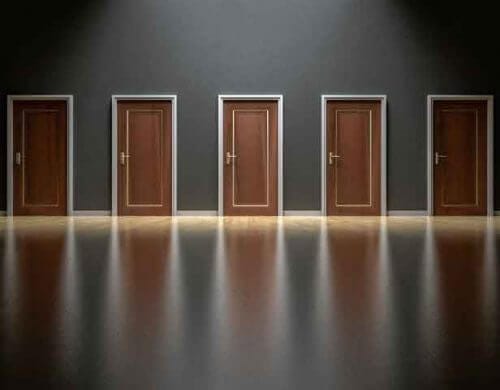
Intuitively, I knew that the authors of the methods had put more energy into promoting the idea than into the treatment. The decision came when I realised that I had been asking myself the wrong question all along: when I was reading the offers, I wondered who to believe or who had a good method and who just had a good marketing consultant. I felt uncomfortable all the time; this feeling also came from intuition.
Then I changed the question. Instead of who to believe, I asked myself what I believe most. This change of question also happened through an intuitive flash. The full, extensive process of how I arrived at my final decision on the choice of healing technique is recorded in the book “Health is within us”.
It’s interesting how quickly things can happen once you open the right door.
Immediately after asking or answering this question, incredible things started happening – I started getting information from all over the place about the same, specific treatment method, without even looking for it: my wife pointed it out to me … I saw it in a publication … a friend sent me a book describing the successes of this treatment method. The main turning point came when I saw the cover. It said: “60 YEARS OF PROVEN SUCCESS!” In big letters and with an exclamation mark… This sentence triggered a drop-over-the-edge effect in me, when I felt that I had found what I was looking for.
Incidentally, this is also often how intuition manifests itself – through certain “codes” or triggers. Sometimes, for example, a stranger speaks a few “ordinary” words to us and triggers a carousel of thoughts and emotions. This is also one of the ways in which intuition communicates with us …
But that’s not all. When my wife was studying astrology at the renowned Kepler Institute, her mentor, a doctor by profession, gave me a horoscope in astro medicine. Although we had never seen each other before, and she had no knowledge of my health trials, she told me that I had healed myself in the only way that was right for me – through food and detoxification.
In addition, she also told me about certain events from my past life, visions or flashes of which I have been experiencing for the last twenty years.
How good are you at identifying people “at first sight”? Or, on the basis of a first meeting or a first contact that is not necessarily a personal meeting (phone call, letter, email, etc.)?
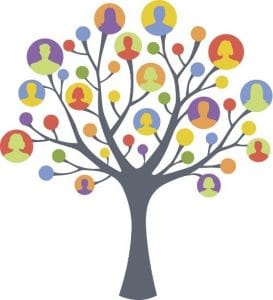
Let me answer this question from two different sides. Firstly, I always recognise people with whom I am energetically connected on some level because I feel “something more” towards them; it can be in a positive or negative sense. I may have a pleasant feeling when I come into contact with a person, or just think about them, that I am not consciously aware of where it came from. Sometimes, I may feel bad in the moment and not know what has happened. It is only when I analyse the situation that I realise that I started to feel bad after I recalled a person, an event, a memory …
But sometimes I just feel a connection with a person that doesn’t make me feel positive or uncomfortable, but just somehow more important than a random passer-by.
The fact is that we are bound to others by an invisible energy that underpins the experience we can have with them. What the experience will be, or how it will unfold and what it will bring, we often do not know until the experience happens.
We often make the mistake of discovering a person in advance, simply because he or she did not awaken pleasant feelings in us when we first met him or her. But that doesn’t mean he or she is not important to us.
Sometimes someone comes into our lives who has come to pass on an experience or to teach us a lesson. In this case, we would literally be giving up a gift if we “cross our fingers” and decide that we are not fully aligned in vision, goals and values, and therefore it is not worth communicating with that person. It is about trusting the feeling and accepting the challenge, even if you feel inside that something strange is happening, or that there are likely to be surprises.
It also happens to me that I start out looking forward to a relationship, but in the end it turns out that the person has just opened up some wounds, giving me a chance to heal them. Sometimes a seemingly lukewarm encounter, which I did not attach much importance to, develops into a deep and lasting friendship.
Secondly, identifying people happens at different levels and in different areas, depending on what you expect from people or what you are looking for. Given that many people approach me with different requests and ideas for collaboration, the first thing I do on first contact is to assess whether the interlocutor and I are on the same wavelength – or resonance – in terms of a shared vision. If I assess that the interlocutor wants me to get out of my own way and exclusively support them on theirs, I end the conversation. The same applies in reverse: if the interlocutor has to give up his own ideas and values to join my projects, I cut off the energy.
I don’t know if it’s intuition or routine or the result of years of experience and dealing with a lot of people, but I can do it very quickly and practically in seconds on first contact. If I’m not sure, I ask a question.
Of course, this process also depends on my current wants and needs. I remember a time when I started seeing a bioenergetician after being diagnosed with a serious illness. Because I wanted to believe that he was my solution, I did not even ask myself whether he was the right person for me at that moment.
It later turned out that it wasn’t. But it was a lesson in looking for opportunities, or putting your power in someone else’s hands in the hope that that person will lead you to your goal.
QUESTION: What do you think intuition is? How would you define it?
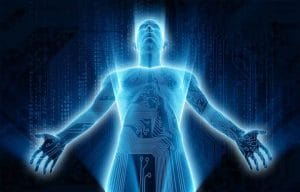
BORIS VENE: Intuition is a message from the physical intelligence – which I also consider to be the deeper levels of the mind, or the subconscious and the soul – that brings us an important message. It always appears as an answer to our conscious or unconscious question or as an important guide for the way ahead. Sometimes it reveals itself in the form of a thought (for example, when we are searching for an answer), a feeling (we may be overwhelmed by pleasant or unpleasant feelings when we think of someone), or it may remind us on a symbolic level.
For example: if I am in a hurry to get to a meeting and I come across a closed road or even miss a turn-off, this is a pretty clear warning that things are not going to go exactly as I expected. (Note: I don’t know if the car example applies to everyone to the same extent. I have chosen, or determined for myself, that the car will symbolically represent my life’s journey. So I have been keeping a close eye on what is happening with it, and so far the feeling has not failed me.)
Intuition is also a guide that leads us to our destination in the fastest way. But the goal need not always be a material achievement, it can simply be the growth of the soul. That is why, for example, intuition can prevent us from starting a project, even though it would earn us a lot of money, build our reputation and so on. But because this achievement might take us away from the inner path or from the key developmental guidelines on the path of personal growth, we do not feel supported or even encounter various blockages and warnings.
The second is that we all have the freedom to choose. Intuition can be perceived and acted upon, or it can be ignored. In the beginning, intuitive messages are very gentle and quiet. But ignoring them does not bring any serious consequences.
If it is an important area of life, or a key section of our journey, these messages become clearer and louder over time. And the consequences are becoming more severe.
The next part of the article is read here.
